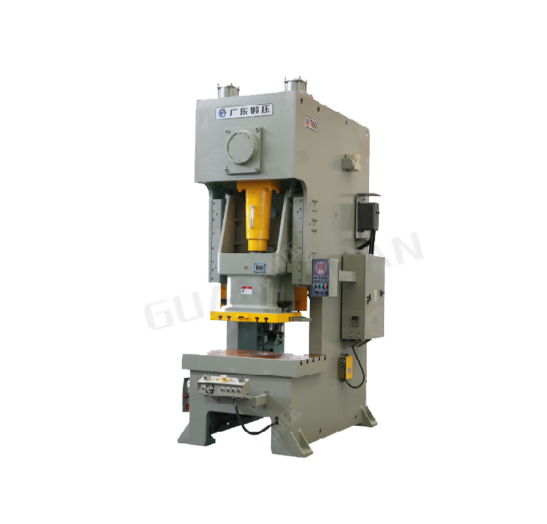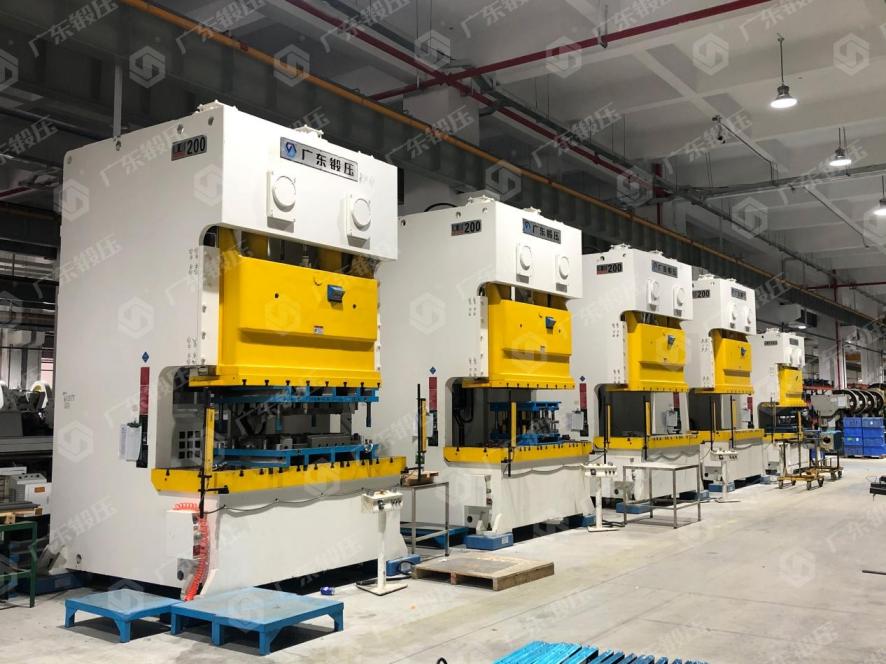
Power Behind Precision: Mechanical Power Press Machine
Mechanical power press machines are essential tools in the metalworking industry. These machines, often seen as the backbone of manufacturing operations, play a pivotal role in shaping, cutting, stamping, and assembling metal components with high precision and efficiency. This blog delves into what a mechanical power press machine is, how it operates, its key features, and how it can be the perfect solution for your project needs.
What is a Mechanical Power Press Machine?
Definition and Purpose
A mechanical power press machine is a mechanical device designed to perform various operations such as cutting, stamping, forming, or assembling materials, typically metals, using a combination of dies and tools attached to slides or plungers. These machines are commonly found in manufacturing plants, especially in the automotive, aerospace, and consumer electronics industries, where the demand for precise and repetitive metalworking is high.

Types of Mechanical Power Press Machines
Mechanical power presses come in various types, including:
C-frame presses: Known for their versatility and compact design, C-frame presses are ideal for operations requiring easy access to the die area.
H-frame presses: Also known as four-column presses, these are used for heavy-duty applications due to their robust construction and ability to distribute force evenly.
Open-back inclinable presses (OBI): These presses are designed to tilt backward to allow easy removal of parts or scrap material, making them suitable for high-volume production environments.
Applications in Industry
Mechanical power press machines are integral to various industrial processes. They are widely used in the production of automotive components, electronics, appliances, and more. These machines are crucial for producing high-volume parts with consistent quality, making them indispensable in mass production settings.
How Does a Mechanical Power Press Machine Work?
Basic Working Principle
The operation of a mechanical power press machine revolves around the coordinated movement of several key components. The process begins with the placement of the material, often referred to as “stock,” onto the bottom die. The upper die, attached to a slide or plunger, is then brought down onto the stock with force, shaping or cutting it as required.
Power Transmission Mechanism
The power transmission in a mechanical power press machine is a critical aspect of its operation. The upper die is connected to a crankshaft via a connecting rod. The crankshaft, in turn, is driven by a motor through a system of gears and a flywheel. The rotation of the crankshaft converts the motor’s rotary motion into the reciprocating motion of the slide, which drives the upper die to perform the desired operation on the material.
Control Systems and Safety Features
Modern mechanical power press machines are equipped with advanced control systems, often incorporating PLC (Programmable Logic Controller) technology. This allows for precise control of the machine’s operations, including speed, stroke length, and timing. Additionally, these machines are designed with safety in mind, featuring mechanisms such as two-hand operation, hydraulic overload protection, and photoelectric sensors to prevent accidents and ensure operator safety.
Features of Mechanical Power Press Machines
Long Service Life and Durability
Mechanical power press machines are built to last, with components such as the gear pairs and sliding pairs undergoing heat treatment, quenching, and precision grinding. This results in smooth transmission, high precision, and significantly extended service life. The use of pneumatic wet friction disc clutches and brakes further enhances durability while reducing noise and ensuring high safety standards.

High Precision and Efficiency
These machines are renowned for their high precision and efficiency. The integration of PLC control systems enables operators to program the machine for specific tasks, ensuring consistent results with minimal error. When combined with automatic feeding devices, mechanical power press machines can form a single-machine or multi-machine automatic stamping production line, significantly boosting productivity.
Customizable Options
Mechanical power press machines can be customized to meet specific production requirements. For instance, manufacturers can opt to install additional features such as photoelectric protectors, constant speed motors, air cushions, output shafts, or mold protection devices. This flexibility allows the machine to be tailored to various applications, enhancing its versatility and adaptability in different industrial settings.
How Mechanical Power Press Machines Can Meet Your Project Needs
Versatility in Metalworking
One of the primary advantages of mechanical power press machines is their versatility. Whether you need to cut, stamp, form, or assemble metal components, these machines can be configured to perform a wide range of operations. This versatility makes them an ideal choice for projects that require multiple types of metalworking processes.
Scalability for Large-Scale Production
Mechanical power press machines are designed to handle large-scale production with ease. Their ability to operate continuously with high precision makes them perfect for mass production environments. Whether you’re manufacturing automotive parts or consumer electronics, these machines can scale to meet the demands of high-volume production while maintaining consistent quality.
Cost-Effective Solution
Investing in a mechanical power press machine can be a cost-effective solution for your manufacturing needs. These machines are not only durable and long-lasting but also capable of producing high-quality components at a fast pace. This reduces the need for frequent maintenance and minimizes downtime, leading to lower operational costs over time. Additionally, the ability to automate the production process further enhances efficiency and reduces labor costs.
Safety and Reliability
Safety is paramount in any manufacturing environment, and mechanical power press machines are designed with this in mind. These machines feature features such as hydraulic overload protection, two-hand push button operation and photoelectric safety sensors. Provides a safe working environment for operators. This reliability is combined with sturdy construction. Ensuring that mechanically powered presses perform consistently under demanding conditions.
Meeting Custom Production Requirements
Every project has unique requirements and mechanical power press machines can be customized to meet these needs. Whether you require specific tooling, die configurations or additional safety features, these machines can be adapted to fit your project’s specifications. This customization capability ensures that you can achieve the desired outcomes without compromising on quality or efficiency.
Conclusion
Mechanical power press machines are indispensable tools in the metalworking industry, offering unmatched precision, efficiency, and versatility. From sturdy construction and long service life to advanced control systems and safety features. These machines are designed to meet the needs of modern manufacturing. Whether you are involved in large-scale production or a professional metalworking project. Mechanical power presses from trusted suppliers like Guangduan can provide the reliable performance and flexibility you need to succeed. By investing in a mechanical power press. You can increase production capacity, reduce costs and ensure consistent product quality.
CONTACT US


Guangdong Metal Forming Machine Works Co., Ltd.
We are always providing our customers with reliable products and considerate services.
If you would like to keep touch with us directly, please go to contact us



